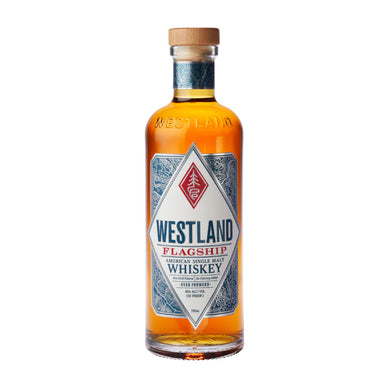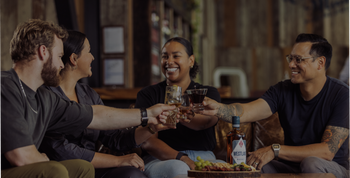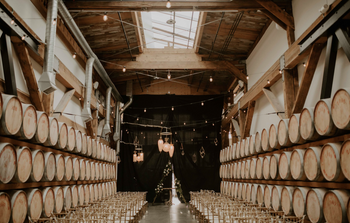Rick DeFerrari owns and operates Oregon Barrelworks in McMinville, Oregon. Rick has dedicated his life to the quality and craftsmanship in making high quality oak barrels the slow and old-fashioned way. In the world of coopering, very few are willing to take the challenge of processing what is called “green wood.” Most often, coopers choose to purchase wood from a lumber mill. Rick studied forestry and engineering, and then after finishing his studies, he lived in France where he learned to build casks by hand. Rick traveled back to Oregon and after a few years building casks under his own company, found that the staves he was buying from lumber mills was not of the quality he was hoping. He wanted to control quality at every step of the way, so he invested in the resources to mill and process his own lumber. At Oregon Barrel Works, Rick operates a cask cooperage that sources wood, processes it in a mill, seasons the wood, and then builds casks.
Why Oregon Oak?
• Unique Pacific Northwest flavor – Richer, spicier, and more complex than conventional oak
• Sustainable sourcing – Slow, responsible forestry instead of mass production
• Chemical compounds – Higher concentration of chemical compounds allows whiskey to develop deep, layered character
Not only does Rick touch more of the supply chain with his small and mighty cooperage, he also works with the rare and distinct Oregon Oak, or as we also call it, quercus garryana. This is a unique species of oak native to the West Coast of the United States, and it is what makes our Garryana whiskeys so unique.
Garryana oak is harder to use, difficult to source, unpredictable at times in the rackhouse. It takes longer to season and is incredibly slow-growing species that is rare. Rick was the perfect partner for Westland, looking to tell the story of place and take the longer road to do this in the most genuine and authentic way possible, so generations ahead can see and participate in our story.






















